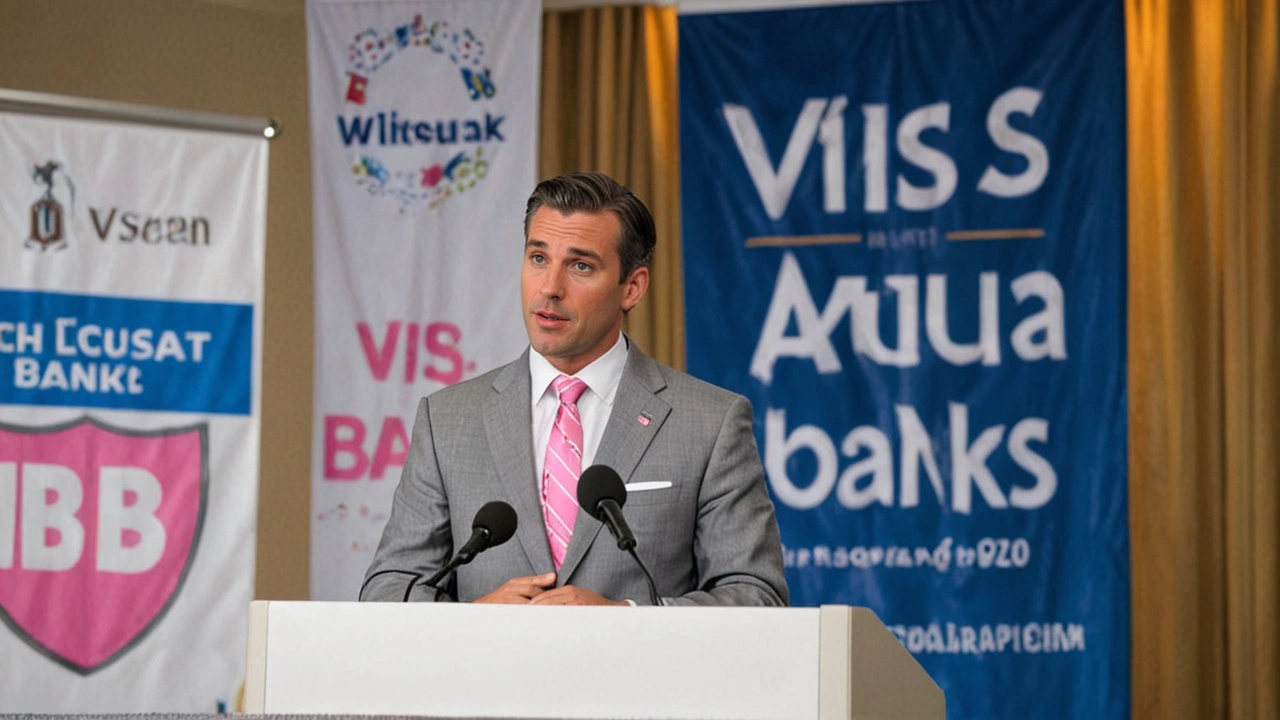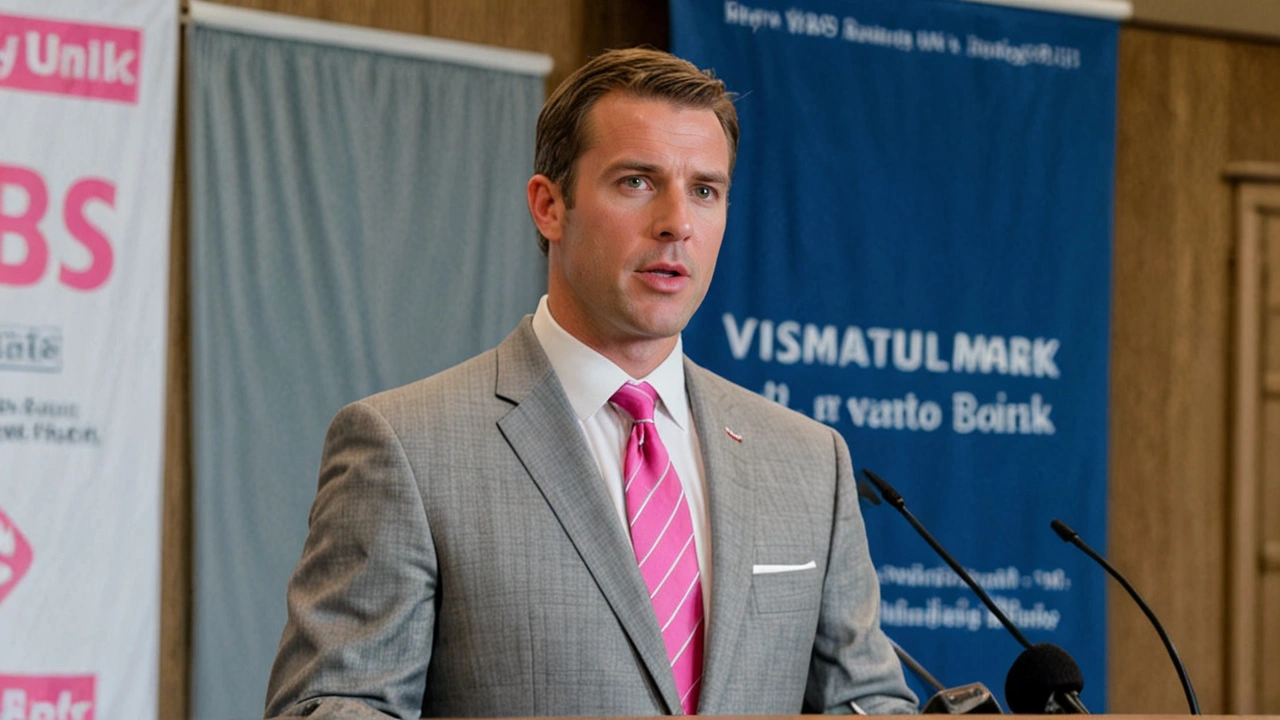Former VBS Mutual Bank Chair Tshifhiwa Matodzi Sentenced to 15 Years for Fraud and Theft
 Jul, 11 2024
Jul, 11 2024
Overview of Tshifhiwa Matodzi’s Sentencing
Tshifhiwa Matodzi, the former chairperson of VBS Mutual Bank, has been handed a 15-year prison sentence following his involvement in the notorious collapse of the financial institution. The verdict comes after Matodzi was found guilty of severe charges including theft and fraud, which collectively led to the bank’s unfortunate demise. His guilty plea to 33 charges as part of a plea deal with prosecutors highlights the gravity and scale of his misconduct. This sentencing is a significant step forward in the ongoing investigation and resolution of the notorious VBS Mutual Bank scandal that shook the South African financial sector.
The Rise and Fall of VBS Mutual Bank
VBS Mutual Bank, once celebrated for its evolving role in South Africa's banking industry, had humble beginnings geared towards providing low-income depositors with accessible banking services. Established as the Venda Building Society in the early 1980s, the bank transitioned into a mutual bank in 2000. VBS became renowned for its innovative solutions tailored to meet the needs of underserved communities, particularly in rural South Africa. However, this commendable mission would later be overshadowed by a catastrophic scandal.
The downfall of VBS began to unravel in 2018 when allegations of extensive corruption, embezzlement, and fraudulent activities surfaced. Government municipalities, influential individuals, and depositors alike faced massive financial losses. Investigations revealed that several officials, including Matodzi, had orchestrated elaborate schemes to siphon funds from the bank's coffers. The credibility of VBS Mutual Bank was critically undermined, culminating in its collapse. The subsequent loss of public trust in similar institutions further exacerbated the damage.

Details of the Sentencing
In court proceedings that drew substantial public interest, Matodzi's role in the scandal was meticulously dismantled. He pleaded guilty to 33 charges ranging from theft to severe fraud, painting a grim picture of the breadth of his involvement. The plea bargain, which resulted in a 15-year imprisonment sentence, was a significant outcome of ongoing legal actions against those entangled in the scandal. The court emphasized that his actions contributed directly to the bank's liquidation, impacting millions and tarnishing an institution once held in high regard.
The sentencing serves as a cautionary tale and a reminder of the critical need for transparency and accountability within financial institutions. Prosecutors maintained that stringent measures and exhaustive investigations would continue to ensure that justice is served. They expressed optimism that this verdict would set a precedent, encouraging ethical governance and deterring potential future transgressions.
Impact of the VBS Mutual Bank Collapse
The collapse of VBS Mutual Bank sent shockwaves through South Africa's financial landscape, with ramifications that extended far beyond the immediate loss of funds. Local municipalities that had placed considerable portions of their budgets into the bank's high-interest bonds faced severe financial constraints. Public services in affected regions witnessed sharp declines as municipal plans for infrastructure development and maintenance were disrupted.
Moreover, individual depositors, many from impoverished backgrounds, were left in financial despair. The closure of the bank denied these communities access to essential banking services, adversely impacting their economic well-being. The repercussions also reverberated within the broader banking sector, prompting regulatory bodies to implement stricter oversight measures to prevent similar crises in the future.
The scandal also highlighted significant lapses in governance and oversight within the regulatory framework, prompting calls for reforms aimed at enhancing the resilience and transparency of South Africa’s banking institutions. Lawmakers and financial watchdogs have since advocated for more robust systems to safeguard against future malfeasance, aiming to restore confidence in the sector.

Community Response and Future Outlook
The community's response to Matodzi's sentencing has been mixed. While many expressed satisfaction with the long overdue accountability, some voiced concerns about the effectiveness of ongoing recovery efforts. There is a palpable desire for stringent reforms that ensure financial institutions are managed with integrity and abidance by ethical standards.
Efforts to recover lost funds and mitigate the effects of the collapse continue, with authorities working diligently to regain public trust. Initiatives aimed at financial literacy and awareness are being prioritized, as well as development projects to support communities affected by the bank's closure.
Looking ahead, the verdict against Matodzi symbolizes a broader shift towards enforcing responsibility and transparency within financial governance. Many hope this case will serve as a landmark, fostering a culture of accountability and protecting the public from future financial misconduct.
Conclusion
Tshifhiwa Matodzi’s 15-year imprisonment for his crucial role in VBS Mutual Bank’s collapse marks a significant chapter in financial regulatory history. The journey towards full recovery and systemic reform is ongoing. South Africa's financial institutions stand at a crossroads, with the need for resilient and transparent governance more critical than ever.

Tamir Duberstein
July 13, 2024 AT 01:17Hope they’re actually returning some of that money to the people who lost everything. Otherwise, what’s the point?
John Bothman
July 13, 2024 AT 08:22Also, why isn’t he on a reality show? ‘The Real Housewives of Embezzlement’? I’d binge it. #JusticeDelayedIsJusticeDenied #VBSscandal
Dinesh Gupta
July 15, 2024 AT 02:47also why is everyone acting shocked? this is south africa. corruption is basically the national sport.
Shalini Ambastha
July 16, 2024 AT 02:29Let’s hope this case sparks real change, not just headlines. Education, transparency, and community oversight can rebuild what was lost. Slowly, but surely.
Amanda Kelly
July 16, 2024 AT 07:22